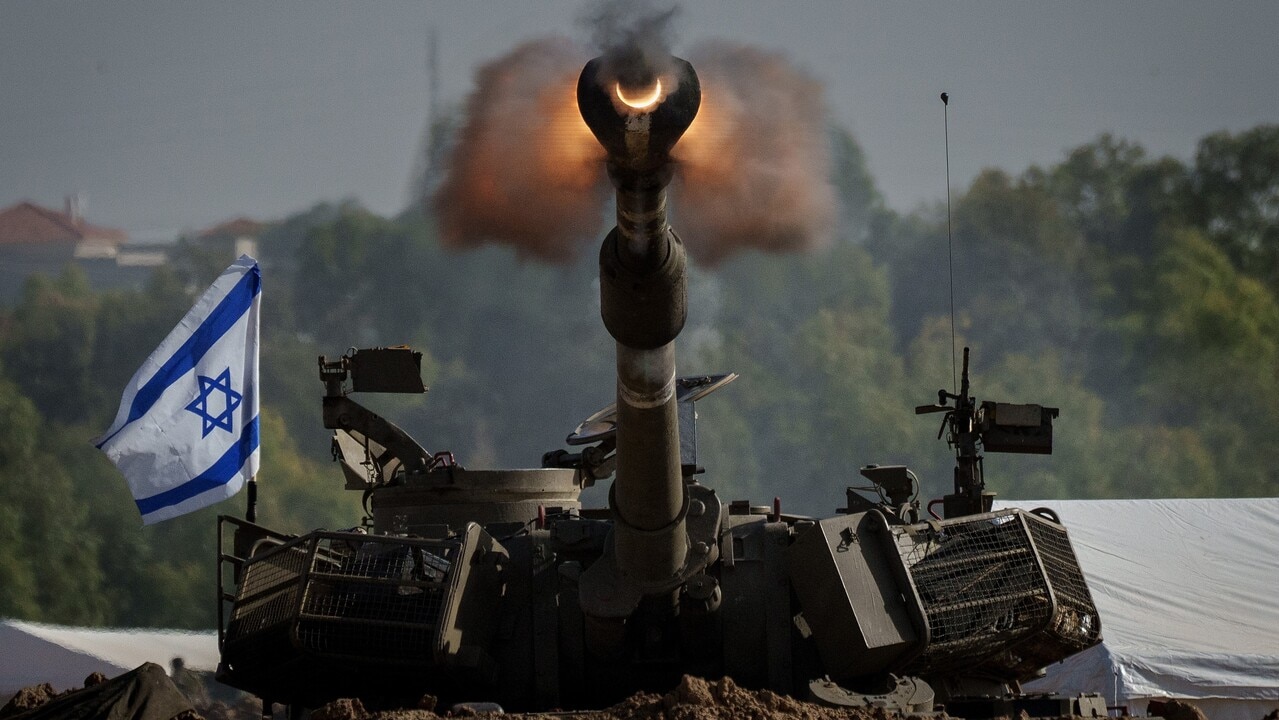While both Israel and Iran appear not to want war, they are still inching closer towards it

Israel has delivered its long-awaited retaliation against Iran by striking key military targets inside the country, but the attack appears calculated to embarrass Iran without triggering an escalation into full scale war.
At the time of writing we are yet to learn the full size and extent of Israel’s attacks which have been made against Iranian targets in Tehran and in at least two other parts of the country.
But we already know two critical facts about this attack, each of which suggests that Israel intended to punish Iran without provoking a larger war.
The first is that Israel has not targeted any of Iran’s cherished nuclear facilities - an attack which would have required a massive and sustained bombardment by Israel and which would have provoked a fierce response from Teharan.
The second is that Israel has chosen not to target Iran’s energy infrastructure, including oil production sites. Such an attack would have roiled world markets, sending oil prices sharply higher less than two weeks before the US presidential election.
The Biden administration strongly opposed targeting either nuclear or oil facilities and reportedly helped persuade Israel to limit its attacks to what the Israeli military is calling “precise strikes on military targets in Iran’’.
These include air defence batteries and ballistic missile manufacturing sites, all of which will make it easier for Israel to conduct future strikes inside Iran if needed.
Iran’s response to these strikes will depend, in part, on how broad they were and how much damage they have caused when the smoke fully clears.
But Iran’s initial response was to play down the seriousness of the attacks. If this tone continues once the full extent of the damage is appraised, it would suggest that Iran is not in the mood for ongoing tit-for-tat strikes which carry the risk of escalation.

These strikes come at a time when Iran’s ability to project terror abroad, including against Israel, has been greatly weakened by Israel’s current assault on the leadership and missile stockpiles of the Iranian-backed terror group Hezbollah in Lebanon.
Iran has also shown itself to be largely impotent in its ability to wreak serious damage on Israel, with both of its two previous missile attacks on Israel this year having failed to cause any significant damage.

Tehran will have to mull whether it is worth launching another largely toothless attack on Israel just to save face after this current strike, which was made in retaliation to Iran’s 180 missile strike against Israel earlier this month.
Not surprisingly, Iran’s religious leaders have stated publicly that they do not want war with Israel. They know that Israel is by far the stronger country militarily and that Iran is beset with enough social and economic problems without a war with Israel.
Israel also does not appear to want a full scale war with Iran while it is pursuing an ever-growing military assault on Hezbollah in Lebanon and a continuing fight against what remains of Hamas in Gaza, while also trying to ensure calm in a restive West Bank.
But these are unpredictable and dangerous times in the Middle East, and further escalation in the Israel-Iran conflict cannot be ruled out.
These strikes mark the first time since the Iran-Iraq war in the 1980s that a foreign air force has struck Iran and earlier this year marked the first time that Iran had launched missiles directly at Israel. So while both Israel and Iran appear not to want war, they are still inching closer towards it. The deadly ripple effects of last year’s October 7 massacre are continuing to spread.
CORRECTION: An earlier version of this story included an image of an explosion incorrectly captioned as purporting to be from Iran, when it was in fact a file image from Lebanon.





